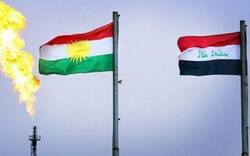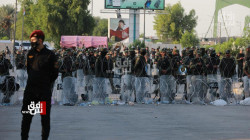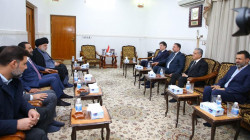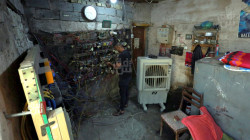Looming dictatorship: Iraq grapples with escalating assassinations
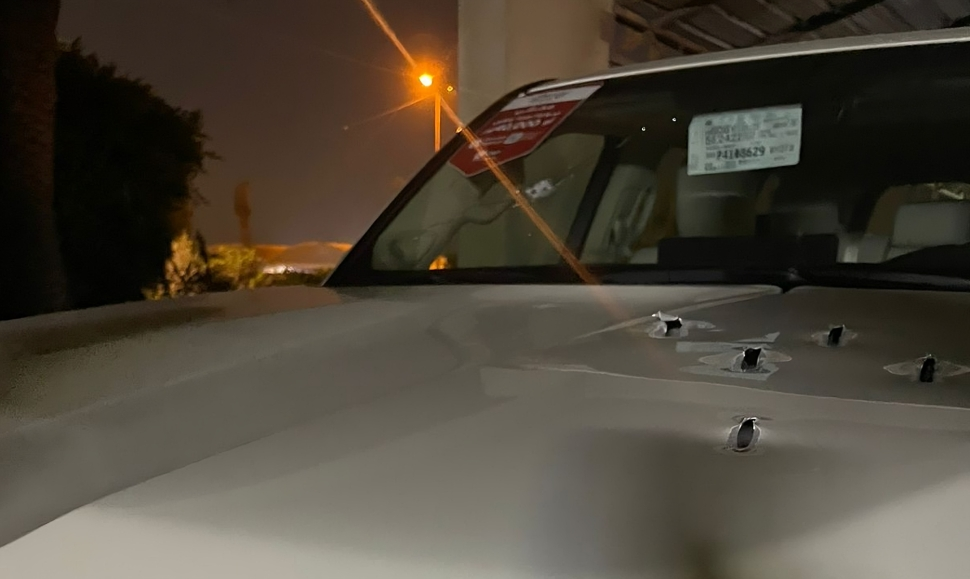
Shafaq News / Iraq has unfortunately experienced a significant number of assassinations throughout its recent history, spanning various periods and involving different motives and actors.
Following the fall of Saddam Hussein's regime in 2003, the country witnessed a surge in assassinations targeting politicians, government officials, religious leaders, and intellectuals, often linked to sectarian tensions, political rivalries, insurgency, and the power struggle.
This violence intensified notably after the bombing of the Al-Askari Mosque in Samarra in 2006, triggering widespread sectarian conflict.
Insurgent groups, including Al-Qaeda and ISIS, have carried out numerous assassinations targeting security forces, government officials, tribal leaders, and civilians, aiming to destabilize the country, undermine the government's authority, and sow fear among the population.
Iraq's political landscape, marked by instability and frequent changes in government, has seen assassinations used as a tactic to eliminate rivals, intimidate opponents, or disrupt the political process.
Moreover, external factors, including foreign intervention and proxy warfare, have exacerbated internal conflicts, with foreign intelligence agencies and militant groups accused of orchestrating assassinations to advance their interests or influence Iraq's internal affairs.
Recently, Iraq has witnessed the execution of five high-profile assassination operations within just three weeks, resulting in the deaths of three.
These assassinations were accompanied by criminal activities, notably in the markets of Baghdad al-Jidida (New Baghdad) and Maridi, indicating a deterioration in the security situation that suggests the country is entering a "danger zone," with the spread of "level three" crimes, including political assassinations, according to observers.
After relative stability in clashes between armed factions and US forces, assassinations have recently resurfaced, casting their shadows over Iraqi streets in terrifying scenes that threaten the security of citizens. Amid warnings of further security collapses in the coming days.
The assassinations began on Feb. 7, with the killing of pediatrician Dr. Khaled Zuhair Ni'ma in central Baghdad. Then, on the 18th of the same month, two relatives of Hadi al-Amiri, the leader of the Nabni Alliance, were killed in the capital.
Interpretations of assassinations
In this context, security expert Saif Raad stated that "the security situation over the past 22 days indicates intelligence failures and security breaches, as evidenced by the execution of five assassinations, including Aysar Al-Khafaji in Babil governorate, Aziz Al-Amara in Kut, and the targeting of Fakhri Karim in Baghdad. All of these have clear implications that groups carefully planned these operations to sow chaos and create security tension."
Raad explained the meaning of assassination, stating, "It is any deliberate killing for a specific reason, such as targeting religious, political, cultural, intellectual, military, or economic figures, or perhaps individuals associated with these ideologies to achieve strategic goals."
He further elaborated, "The targeting of Aysar Al-Khafaji was likely aimed at provoking conflict within the Sadrist Movement in Babil, and this conflict could spill over to other governorates. However, the crisis was defused, and the anger of Sadrist supporters was quelled after a tweet from Muqtada al-Sadr, and this should be credited to him for exposing this plot."
He added, "Similarly, the targeting of Aziz Al-Amara, with his military background, and the targeting of Fakhri Karim due to his intellectual background, as a well-known figure in thought, culture, and other fields."
"All of these operations have implications, including the attempted assassination of Hadi Al-Amiri's nephew and brother-in-law, which had political connections. Therefore, everything that happened represents messages indicating that these incidents may be driven by international and intelligence agendas, with implications for what happened in the formation of provincial councils, political dimensions, positions, and others."
He continued, "There may be parties seeking to undermine Al-Sudani's government with complex and sensitive issues, all of which have occurred within a specific time frame over three weeks with the escalation of operations, indicating that there are hidden entities behind this escalation."
"However, this does not include what happened in the markets of al-Sadr City and Baghdad al-Jibaghdadcdida, as there is a difference between the assassination incidents and what happened in these markets, as they are considered criminal crimes or under the guise of tribal vendettas or other matters. They are incidents indicating the presence of unrestricted arms."
He asserted that "there is negligence, and the security agencies, which bear the brunt of what is happening, should be held accountable. The political aspect is also responsible because the law enforcement authority carried out by the security agencies is linked to political decisions. Therefore, the political decision is a part and a guarantor of the performance of the security agencies in uncovering the truth."
He pointed out that "what happened in the attempted assassination of Fakhri Karim was close to the Green Zone, only hundreds of meters away, which is a danger signal. Despite more than three days passing since the incident, the Ministry of Interior or the Baghdad Operations Command responsible for the crime have not revealed the perpetrators, creating ambiguity about the events."
Raad expressed his concerns "about the use of state weapons and vehicles, as seen before in the targeting of Hisham Al-Hashimi or Ahmed Abdul Samad. Therefore, results must be revealed to reassure the Iraqi society."
Interior Minister Abdul Amir Al-Shammari directed on Feb. 23 to form a specialized security team to search and inspect "criminal" elements who targeted the vehicle of Fakhri Karim, President of Al Mada Group for Media, Culture and Art, last Thursday evening, in Al-Qadisiyah area in Baghdad.
Al-Shammari emphasized intensifying security and intelligence efforts to reach the perpetrators and bring them to justice to receive their punishment.
Noteworthy, Karim survived an assassination attempt in Al-Qadisiyah area within the capital, Baghdad, while returning with the Foundation's General Manager, Ghada Al-Amili, from the International Book Fair.
According to a statement from the Foundation, unidentified gunmen riding two (pickup) trucks attempted to assassinate him at 9:00 pm by blocking the road to stop Fakhri Karim's car, then they opened fire on his car with light weapons and fled.
The Foundation considered that "the heinous and failed assassination attempt confirms that the forces of darkness do not want to see Iraqis happy and engaged with a major and influential cultural event like the International Book Fair," calling for a swift investigation to uncover the attackers and those behind them, and to bring them to justice promptly to receive fair punishment.
Level three crimes
In light of recent developments, strategic expert Dr. Ahmed Al-Sharifi asserted, "There is no doubt that we are entering a dangerous phase, and our assessment of this situation is based on the hierarchical reading of acts of violence or crime."
Al-Sharifi explained, "Crimes are classified into three levels. The first is criminal violence committed by individuals or groups, followed by organized crime, which is significantly more dangerous as it combines criminality with political dimensions and motives, possibly transcending borders."
He added, "The third level, which we are currently witnessing, is political crime, described as being carried out through assassination operations. This signifies a departure from the principles and foundations of the democratic system because political assassinations occur only in the presence of opposition and differences of opinion."
He clarified, "In democratic systems, differing opinions are accepted, opposition is acknowledged, effective, and influential, reaching the level of influencing political decision-makers. Resorting to political or physical elimination contradicts the values of democracy."
"Therefore, there is a crucial principle, namely the peaceful transfer of power, which may allow the opposition to assume power for a period without being assassinated to avoid dissent. This implies that the essence of the democratic system is threatened by the principle of the peaceful transfer of power," Al-Sharifi stated.
The strategic expert believed, "We are on the brink of a new dictatorship, albeit operating within the democratic space realm. The situation in Iraq is evident; since the formation of the current government and the overthrow of the tripartite alliance representing the majority, we realized that arms would play a role in settling political scores."
He continued, "This was observed in the clashes in the Green Zone resulting in casualties, with facts and details withheld from the public, which led to the withdrawal of the current and subsequent collapse of the tripartite alliance in the political process, paving the way for the minority faction to govern the country. Matters persisted as if closer to a soft coup, where events unfold."
"We are now in the most dangerous phase, as assassinations occur without details disclosed, and they have begun to target participants in the political process, as seen with factions close to Hadi Al-Amiri, others close to the Sadrist Movement, and another faction represented by Fakhri Karim, a media and political figure simultaneously, representing an advanced line in the country's political process among opinion leaders."
He elaborated, "Therefore, we face an extremely dangerous balancing act. Flexibility in managing security strategy and tactics is imperative. For instance, when an incident occurs, such as in the Maridi market, where clashes erupt in densely populated areas involving medium-grade weapons, and a person is killed, their car stolen, and the incident filmed."
"Notably, the operation took considerable time without a security response. In such hazardous and sensitive areas, there should be a security presence. This presence ensures the state's authority and is a deterrent to managing such challenges."
He asserted, "These challenges constitute a crisis and a challenge, requiring a strong presence of the security establishment. The focus should not solely be on security or military action in the deterrence strategy to apprehend perpetrators of such crimes but rather prevent such crimes from occurring. That is true success."
Al-Sharifi concluded, "Therefore, in my estimation, there is a security setback indicating that the upcoming phase may witness the settling of scores, and the danger lies in political score-settling escalating amid the government's and its institutions' inability to deter conflicting political factions."
He warned the government, stating that the warning was not meant for condemnation or criticism but rather to motivate action to avoid potential repercussions leading to further security deteriorations.
The Iraqi Ministry of Interior affirmed on Monday the arrest of all those involved in the two crimes that occurred in Baghdad and Al-Jidida and Maridi Market in the east of the capital.
The spokesperson for the Ministry of Interior and the Security Media Cell, Brigadier Miqdad Miri, stated that all perpetrators of the incidents in al-Sadr City and Baghdad Al-Jidida are in custody.
On Sunday, a person was killed during a shootout in Maridi Market in east Baghdad before the perpetrators left him bleeding on the ground, seizing his weapon and fleeing in a shocking scene.
Before that, in Baghdad as well, two people were killed in an armed attack in Baghdad al-Jidida Market, before it was revealed later that the perpetrators were two senior officers, one of them holding the rank of colonel, working in the office of the Interior Minister.
These incidents come at a time when the Iraqi Ministry of Interior launched initiatives to restrict arms under state control, including allocating one billion dinars (approximately $7.63 million) to each governorate to purchase medium-grade weapons from citizens.
Silencing others
In turn, independent politician and former MP Mithal Al-Alusi asserted that "what happened is evidence that the security apparatuses still do not rise to the professional level and that the Iraqi government is in a major crisis with its competitors, even with the components of this government, and frankly, this does not bode well."
Al-Alusi explained that "the factions' leadership does not consider their government's head, nor do they consider the public atmosphere. These assassinations are clear political tactics to silence others and their competitors and terrorize them. It is a clear competition among armed groups to determine the strongest among them."
He pointed out that "official sources suggest that the Iranian Revolutionary Guard (IRGC) is the one responsible for silencing the so-called (resistance) by preventing it from undertaking any military action against Americans and others. This indicates that the force capable of maintaining security in the Iraqi streets and preventing assassinations is not Iraqi, but Iranian."
Al-Alusi believed that "the interest of IRGC and the Iranian regime is clear in stirring chaos and annoying the US and the Arab and regional surroundings with the chaos of assassinations, as seen in Lebanon, Syria, and elsewhere, while the decision lies outside the authority of the Iraqi armed forces and Iraqi political decisions, but rather with the militants that are under Iran's command."
He emphasized that "what is happening is a real crisis threatening the security of citizens, and Al-Sudani must prove that he is adequate for his post as the Prime Minister of Iraq, or else things will escalate into bigger disasters."
In conclusion, the recent surge in assassinations in Iraq has created a dangerous atmosphere that poses a threat to the security and stability of the nation.
Urgent and comprehensive measures are needed to address the root causes and ensure the safety of citizens.
